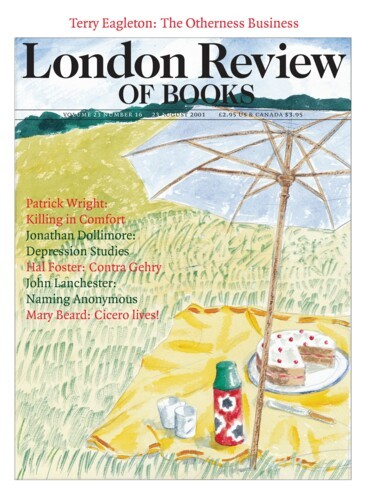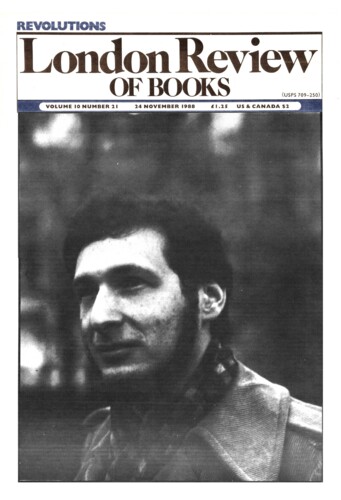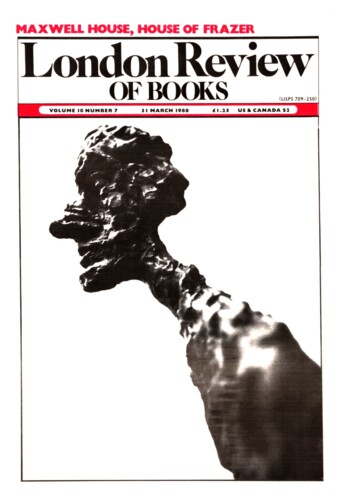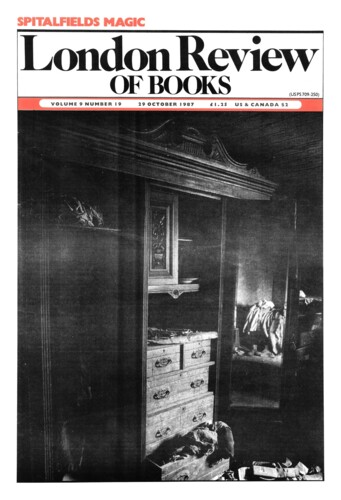Dropping Their Eggs: the history of bombing
Patrick Wright, 23 August 2001
‘I cannot recall taking a single piss during my childhood, whether outside or at home in the outhouse, when I didn’t choose a target and bomb it. At five years of age I was already a seasoned bombardier.’ This is an unusual way of embarking on an analysis of modern warfare and its technologies, but then Sven Lindqvist has long been writing history in his own way. Oral...





